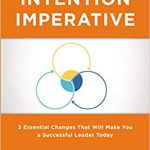We all know that focus in the workplace is key to high performance. So why do we have such a hard time doing it?
Focus in the workplace is more powerful than brains or brawn or technology for achieving greater productivity and results. So, what keeps us from being able to focus?
![]() The number one killer of focus is distraction. Distractions are deadly.
The number one killer of focus is distraction. Distractions are deadly.
Nicholas Carr writes that as a species we’re inherently in love with distractions.
I’m not entirely sure why that is, maybe it’s because at one point in our evolution distractions served us well. We were always alert to the potential of danger or something going on that needed our attention.
What I do know is that today there is very little actual danger in the workplace for many people, but the distractions continue—even multiply and amplify. As a result, we continue to focus on them rather than the more important work to be done that will actually make a difference in our organization.
Tweet this: Distractions happen to the average knowledge worker every 11 minutes. Heck, I picked up my phone twice while writing this article and checked my email once.
What’s even more telling is that multiple studies indicate it takes, on average, between 20 to 25 minutes to refocus our attention after being distracted. Which means we’ll have a second distraction before we can refocus!
![]() The question is: How do we deal with distractions successfully?
The question is: How do we deal with distractions successfully?
First, let’s be very clear that often we confuse the important and the relevant with the interesting and the enjoyable.
When you get a phone call, it may not be relevant and it may not be important but there’s always the chance that it’ll be somebody you wanted to hear from. And when that little chime goes off and the email comes into your email box, there’s always a chance that it’s not work related but may be an invitation to a really great party that weekend!
We all live in the real world, where we can not get rid of distractions. Neither can we completely ignore all distractions. And some distractions are really and truly important and relevant, either now or in the future. What you can do is learn how to prioritize distractions so you’re better able to determine which distractions are worthy of your time now, which can wait, and which should be ignored.
Singular focus in the workplace, the ability to stay focused and to avoid distractions, is critical to producing greater results and getting more productive with your time.







